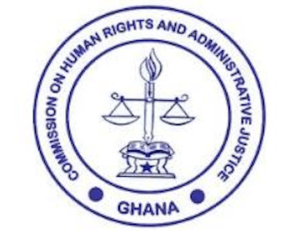CHRAJ records 667 human rights abuses in Central Region
 The Central Regional office of the Commission on Human Rights and Administrative Justice (CHRAJ) last year recorded a total of 667 human rights infractions as compared with the 660 cases recorded in 2018.
The Central Regional office of the Commission on Human Rights and Administrative Justice (CHRAJ) last year recorded a total of 667 human rights infractions as compared with the 660 cases recorded in 2018.
Of a total of 824 cases received for various rights infractions, administrative justice and anti-corruption, 577 were closed while 125 are pending.
One hundred and two of the cases were from the previous year (2018).
Mr Theophilus Tetteh Tuwor, the Regional Director of the Commission made this known in an interview with the Ghana News Agency (GNA) in Cape Coast on Monday.
Among the rights infractions, child rights related cases including non-maintenance, right to education, name and access as well as custody was the highest with 334 reported cases.
This was followed by property rights related issues of destruction of property, retrieval, truancy, share of property and inheritance with 101 recorded cases, while breach of agreement, non-payment of salary, SSNIT and right to work registered 117 cases.
Women rights related cases such as non-maintenance, non-performance of customary rights and denial of paternal responsibility recorded 81, while civil and political issues relating to the right to bury, respect and dignity registered 32 cases.
Touching on the performance of the districts in the 12 administrative districts of CHRAJ in the Region, Mr Tuwor mentioned the highest recorded districts to include Agona Swedru, Winneba, Cape Coast, Dunkwa-on-Offin, Saltpond and Abura-Dunkwa.
Ajumako, Breman-Asikuma, Apam, Assin Fosu, Elmina and Twifo Praso were among the districts with least recorded cases.
However, the only anti-corruption case recorded in the Region came from Assin-Fosu with the Cape Coast Metropolitan Area having the most reported cases of administrative justice, which was 13.
The Regional Director of CHRAJ called on parents, family members and community leaders to report cases of sexual abuse of children to expose perpetrators, adding that CHRAJ was ready to offer protection to citizens who reported crimes to avoid victimisation.
The Commission, he said scaled-up public education programmes at the community level, schools, groups and institutions on how they could demand accountability from public officers.
Such engagements, he said, offered the citizenry the opportunity to learn basic human rights and allowed those who ordinarily would not have the opportunity to access legal services to also report and pursue corruption related cases.
Source: GNA
